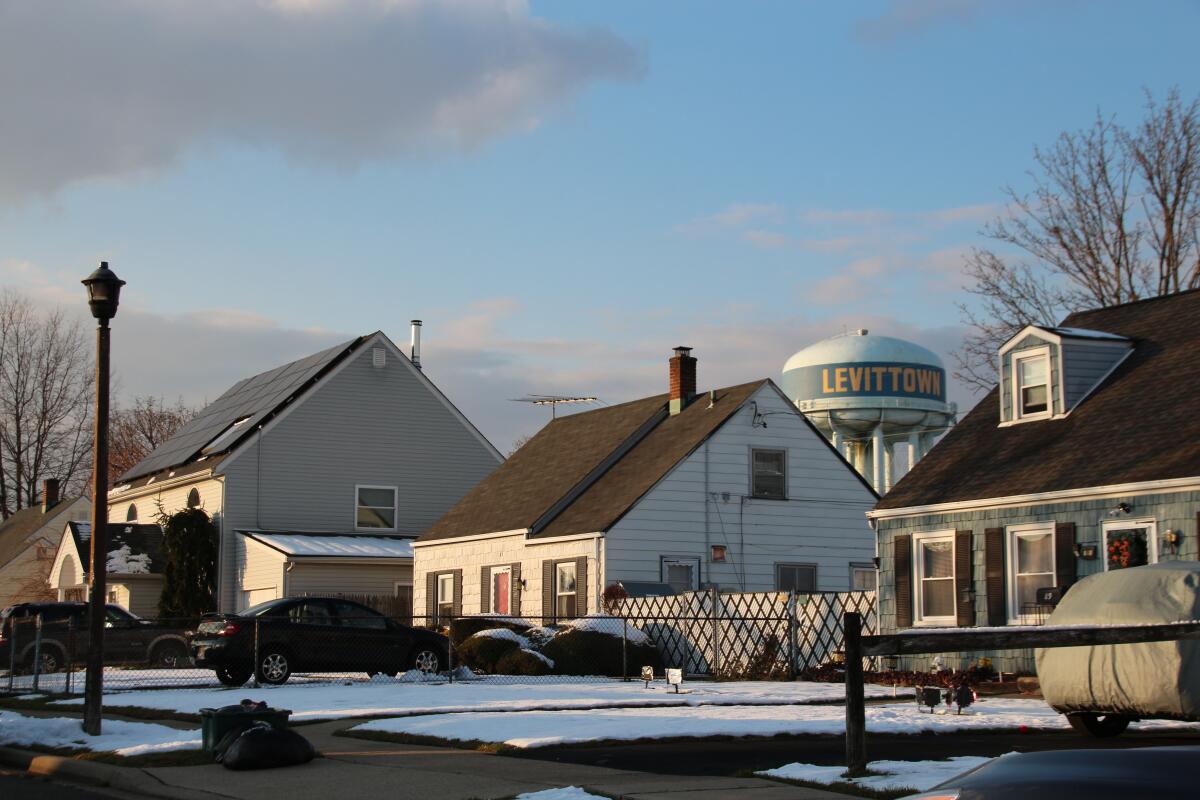Is the dream of owning a home losing its appeal?

- Share via
Casual visitors to the United States could be forgiven if they thought that this country was obsessed with real estate and houses. Turn on the television and it is impossible to miss the wall-to-wall shows featuring people looking for their dream house, renovating fixer-uppers, flipping houses and countless spinoffs.
It is hard to overstate the centrality of one’s home in the American psyche. The Hollywood sign in Los Angeles was an advertisement for a new housing development. More than 7 million new homes were built in the last decade alone. Housing construction and improvements are big economic drivers, and unstoppable sprawl has altered the landscape in nearly every metro area in this country.
The government itself has promoted the benefits of homeownership, and scholars have chronicled Americans moving from cities to suburbs to exurbs in pursuit of land of their own. And many aspects of civic life and property ownership have been closely linked.
In the post-war era, homeownership became the aspired norm as the nation became suburban and experienced a baby boom, and numerous financial incentives were put in place to promote and finance homeownership. But while homeownership has long been considered a vehicle for building wealth, it is not necessarily what most people think the American dream is all about.
A new national poll from the Los Angeles Times and Reality Check Insights asked respondents to rate various components for whether they are essential to realizing the American dream. Only 45% of Americans believe that owning a home is essential.
In fact, freedom of choice in how to live one’s life (80%) and one’s ability to have a meaningful family life (76%) far surpassed amassing wealth and career success as being essential to achieving the American dream. Being able “to retire comfortably” was the only other factor that was viewed as essential by more than half the respondents. Traditional metrics of success are no longer salient: just over a third (38%) of Americans believed that doing better than their parents was essential; only 13% thought becoming wealthy was essential. Freedom and family were rated the most important pillars for the American dream by the largest margins in every racial and ethnic group.
There were, however, some small distinctions — for instance, 82% of Black respondents say that a good family life is essential to the American dream, compared with 76% for white respondents.
And though owning a home is less important for most people, views on homeownership are not uniform. One of the surprising findings is the difference in how older and younger generations see homeownership.
Many media stories have promoted the idea that young Americans value experiences more than “stuff.” But this may not be true when it comes to housing. It turns out that 57% of people between 18 and 29 believe homeownership is still an essential part of the American dream. Yet it is less and less important for older generations. Only 41% of those ages 50 to 64 and the 39% of those 65 and older feel the same way.
It may be that older Americans, many of whom have already owned a home, realize that ownership is not so important. (The age-based difference on homeownership is not reflected in other things, such as a desire for a good family life.)
There are some racial and ethnic differences when it comes to valuing homeownership, too. Some 53% of Black respondents, for instance, say that owning a home is essential, compared with 42% of whites and 46% of Latinos. But variance by income and party identification is minimal, although people with less education are more likely than those with college degrees to say that it is essential to own one’s home.
Women are more likely to say homeownership is essential compared with men (48% to 41%), which supports an increasingly clear trend of single women buying their homes and focusing more on wealth accumulation at higher rates than men.
Despite some demographic differences in attitudes toward ownership, the reality is that for many people, success is not centered on owning a home, material gain, being in a better financial position than their parents or professional achievement for their own sake. Social factors related to the family and lifestyles are more dominant in their views of attaining the American dream.
For instance, 87% of people over 30 who are married believe they are either living or are on the way to achieving that dream, compared with 68% of single people over 30. Interestingly, people’s views are not much dependent on whether they live in the suburbs, where homeownership is high, or in urban centers, where homeownership is lower.
In a nation awash in consumerism, signals of status and wealth are omnipresent in the social media world, hurting our collective mental health. The focus on our homes and their luxuries seems relentless, but those things may not be what drives Americans when they wake up in the morning. The new data provide optimism that families and the freedom to make life choices are comfortably at the center of the American dream.
Samuel J. Abrams is professor of politics at Sarah Lawrence College and a visiting scholar at the American Enterprise Institute.
More to Read
A cure for the common opinion
Get thought-provoking perspectives with our weekly newsletter.
You may occasionally receive promotional content from the Los Angeles Times.









